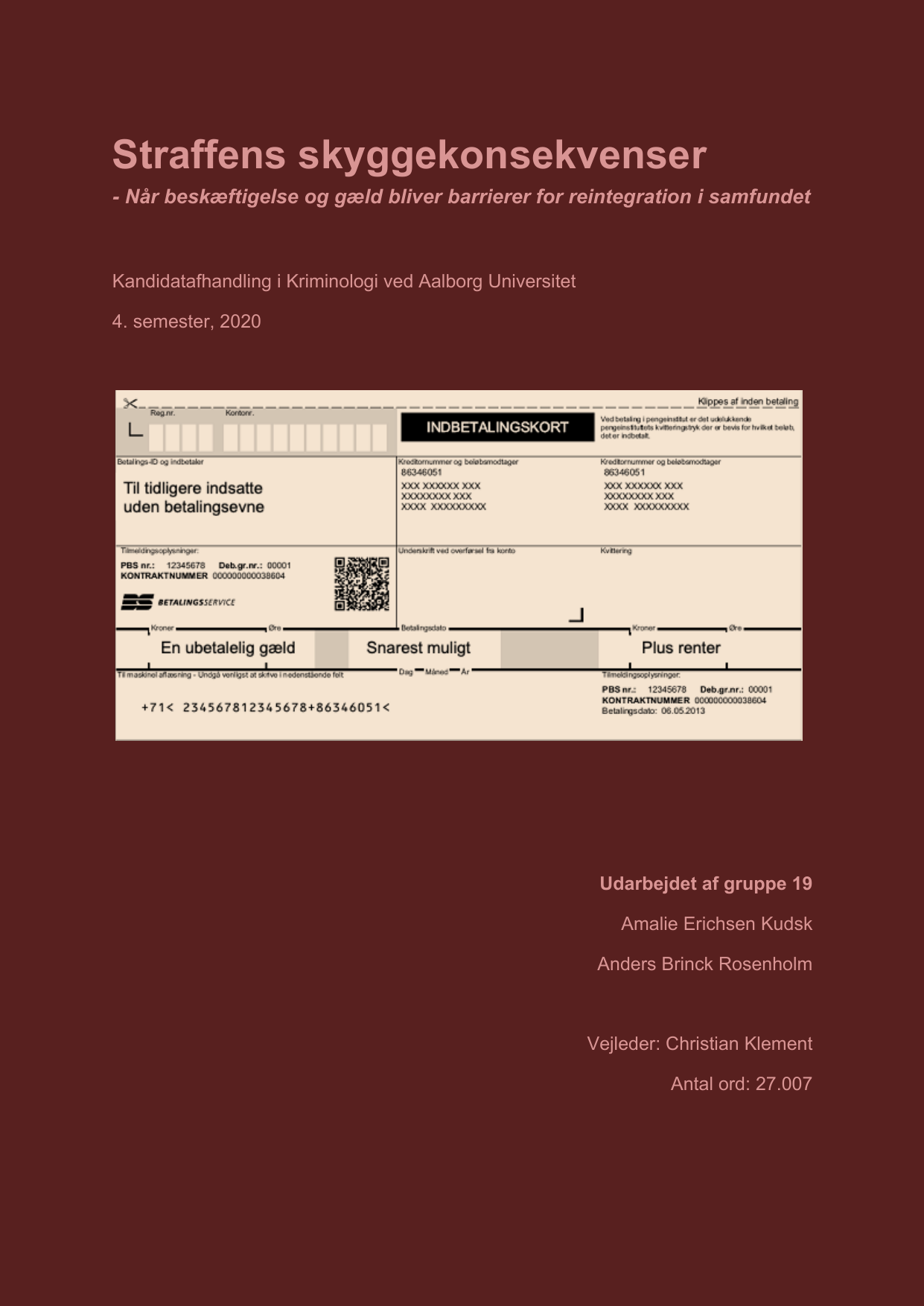
Straffens skyggekonsekvenser - Når beskæftigelse og gæld bliver barrierer for reintegration i samfundet
Oversat titel
Barriers to reintegration after prison release
Forfattere
Semester
4. semester
Uddannelse
Udgivelsesår
2020
Afleveret
2020-06-04
Antal sider
85
Abstract
The scope of this master’s thesis is to examine how the barriers debt and employment influence ex-convicts after being released from prison and how these experiences can prevent reintegration into society. Scientific knowledge available concerning the time after release is very limited, but danish research studies show that even when the prison sentence ends the ex-convict still has an unpaid debt to society, both literally and figuratively speaking. Several studies show that obstacles like debt from criminal costs, a criminal record, low employment possibilities, and a lack of work incentive and very limited possibilities of income and ownership and a future without hope of paying off their debt or reaching a settlement in this regard. Debt especially is identified as a determining factor for the life conditions of ex-convicts and a barrier to reintegration after release. At society level the total debt from criminal costs has grown dramatically since 2014 from 2.46 to 4.45 billion DKK. Especially since 2017 when new rules introduced interest rates of 8 pct. annually. Simultaneously debt payments from ex-convicts fell to a record low. Not so surprisingly perhaps considering that 72 pct. of the debtors were without solvency. These implications on the socioeconomic level have yet to impact on danish polity. However, this thesis finds that there is a general agreement across the political spectrum to legislation concerning debt from criminal costs to stimulate work incentive and inhibit recidivism. Utilizing an adaptive and flexible approach to the analysis, the qualitative study of this thesis uses both primary and secondary analysis to explore how four very different ex-convicts have experienced debt and employment as barriers to reintegration. Due to the adaptive and open-minded nature of methodology two new barriers appeared out of the analysis and presented themselves in the lives of our ex-convicts. In all four cases both identity and skills influenced the process of reintegration and were also found to affect the other barriers negatively, especially the employment barrier. This thesis demonstrates that the relatively unilateral focus in danish research on the time before prison release as well as debt and criminal record needs to be broadened to include other barriers over a longer period of time after release to support a better understanding of how the different barriers interact and influence reintegration. The analysis concludes that debt is still the most determining barrier. It is also established that the employment barrier affects reintegration, though it is necessary to include more factors than the criminal record if the level of influence is to be properly determined. The thesis also presents a new theoretical model of failed reintegration, that visually demonstrates how pains of the punishment contribute to creating certain barriers after prison release that can lead to a failed reintegration.
